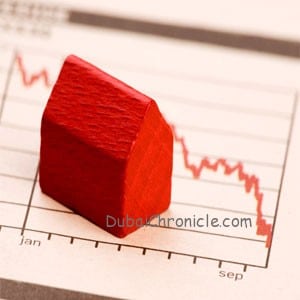
Phidar Advisory Releases June & August Dubai Residential Property Note: Sentiment-fueled buoyancy fades, correction ahead
Today, Phidar Advisory released its Dubai residential research note with June and August quarterly data. The report shows nominal to moderate rent declines and forecasts further softening, based on three-month moving averages.
“The false start of early 2017 is over and the cracks are starting to show,” said Jesse Downs, Managing Director of Phidar Advisory. “Sale volumes of completed properties are at a 6-year low and vacancies are rising across the city,” she added.
In August, quarterly lease rates declined another 1.1%, while sale prices decreased nominally by 0.2%, pushing yields down slightly to 7.34%, based on a three-month moving average. The consistent (albeit slower) rent declines indicate that sale prices need to adjust downward. The quantitative and qualitative analyses indicate rent declines will continue through 2017 and into 2018 as job growth remains low and new supply is handed over.
“Rent declines slowed over the summer, but higher vacancies should push rents down faster in the coming real estate season,” said Ms. Downs. “This is positive because the city will become more affordable for residents, which helps businesses by reducing employment costs. There is a fundamental shift in the demographics of Dubai and the real estate market has not yet adjusted to this new reality,” she added.
Off-plan market transaction volumes remain steady due to developer subsidies in the form of post-handover payment plans. The result is a shadow financing market, which is creating an unhealthy divide between the primary and secondary markets.
“Steady off-plan volumes are not an indicator of a healthy residential market,” said Ms. Downs. “The post-handover payment plans artificially boost demand and will likely lead to overbuilding, compounding the problem in the years to come,” she added.
In Q2-17, Phidar’s Dubai Real Estate Investment Demand Index (REIDI) increased by 32.6% compared to Q1-17. Although this seems positive, the REIDI is still weak, in relative terms. Q2-17 represents relative improvement compared to Q1-17 because the latter had the lowest REIDI value since 2002. The Q2-17 value is on par with the average value since Q1-15. Short term gains were driven by exchange rate fluctuations and modest weakening of the USD.
“We estimate that the residential market is still over-valued by around 15 to 20 percent,” she said. “False expectations of a 2017 recovery kept the market temporarily stable, but the fundamentals indicate another phase of correction is required before the market can recover,” concluded Ms. Downs.
Phidar is now publishing its main House Price Indices and Dubai REIDI at www.phidaradvisory.com complimentary for users.

























![The Square at Nad Al Sheba Gardens Now Open hope tax season treated you well! Just checking in—ready to refocus on growing your business? I remember how we discussed scaling your [specific aspect of their business, e.g., online presence] but paused due to time constraints. We now offer a streamlined 6-month plan that delivers real results without adding to your workload. Let me know if you'd like to chat—I’d love to help you pick up where we left off!](https://www.dubaichronicle.com/wp-content/uploads/2024/11/The-Square-5-218x150.jpg)






